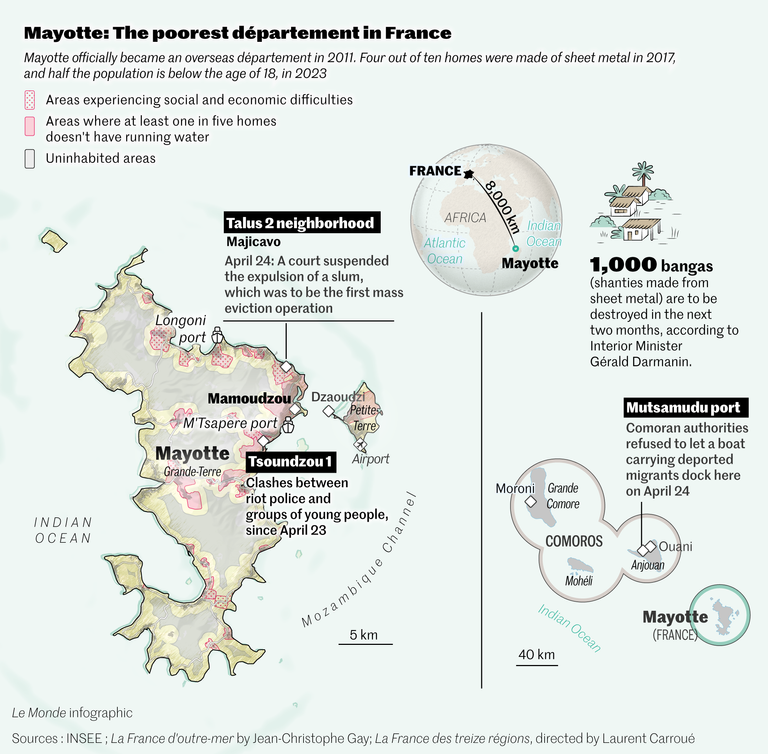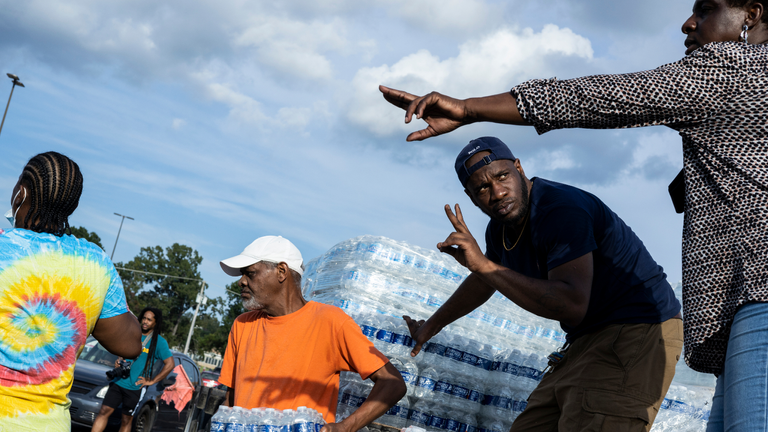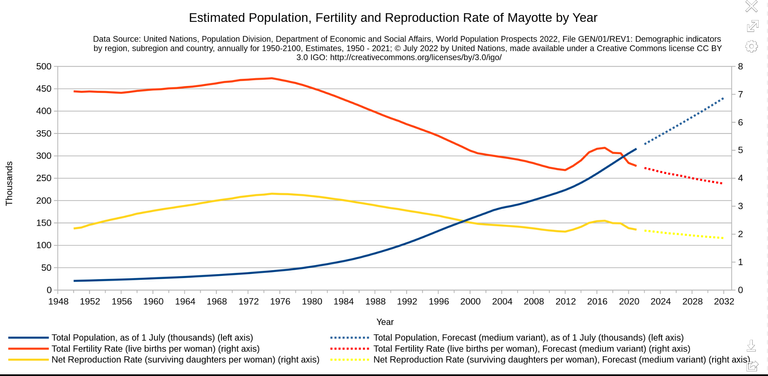
Mayotte, a French overseas territory off the coast of East Africa, is in crisis. Over the last few days, riots and social unrest have engulfed the territory. France's poorest region amidst a growing water shortage and social crisis characterised by overpopulation, poverty and violence. Images on social media this week appear to show burnt out houses and police vehicles as the department security situation worsens and France's Minister for the overseas Gerald Darmanin, has announced the deployment of additional gendarmerie squads to the territory to combat rising crime. Mayotte has also seen high levels of illegal migration from the neighbouring Comoros archipelago creating a rapidly growing population that poses an urgent security problem for the French government. In this article we'll have a look at what's happening in Mayotte, how a social crisis is unfolding and what this says about France's governance overseas.
Before we dive into the social and political history of Mayotte let's start with the ongoing water crisis. The territory is currently experiencing its worst drought since 1997. Residents have had minimal or no access to drinking water since September, with resources at a critically low level. The territory's two hillside reservoirs are at capacities of 7% and 6% respectively according to the Mayotte state government and are at risk of drying up completely. Emergency supply cuts are in place across the territory and authorities have now turned to desperate measures, handing out bottled water shipped in from mainland France, La Reunion or nearby Mauritius to Mayotte entire population. Not only is this a very short term solution to Mayotte water shortage, which in turn impacts health and agriculture, with diseases like cholera and typhoid on the rebound and farmers concerned about crops but it also risks exacerbating an infrastructure problem in a territory that's already struggling. Environmental groups fear the 11 million tonnes of daily plastic waste from France's bottled water initiative will either make its way into the surrounding Indian Ocean or create an unmanageable buildup of rubbish in and around slums, with inadequate facilities for recycling.

This poor infrastructure is a symptom of Mayotte economic deprivation. 75% of the population lived below France's poverty threshold, and given the very high fertility rate five children per woman on average Mayotte school system is overstretched. Under 18 make up nearly half of Mayotte population, many of them undocumented immigrants from the Comoros. So to fully contextualize the territory's current social crisis, we need to look at its unique geographical and post-colonial situation. Firstly, despite its location 5000 miles away from metropolitan France, Mayotte political status is equivalent to any one of France's internal regions situated between Madagascar and Mozambique it consists of a main island Grande Terre, a smaller island Petite Terre, and several smaller islets. Although geographically distant from Europe as a department of mainland France, Mayotte is part of the EU and the eurozone. However, the departure of the neighbouring Comoros islands from France in the mid 1970s laid the groundwork for the migration shifts that have shaped the modern demography of Mayotte, while the French Comoros a former 19th century colony which used to include Mayotte voted overwhelmingly in favour of independence in December 1974 Mayotte voted against it and thus remained under French control. Migration from the Comoros to Mayotte in the decades since has caused the foreign population to grow significantly.
In 1985, Mayotte population was 67,000. Today it's 310,000. Additionally, many young people who were born in Mayotte have left for metropolitan France, meaning that as of 2019 almost half of Mayotte population does not hold French nationality. As a result, France has ramped up efforts to deport illegal migrants over the last year as part of Operation Wuambushu or Take Back, announced officially in April 2023. Since then, undocumented immigrants have been the target of arrests and deportations and in May over 100 slum homes were destroyed as trucks and excavators bulldozed a shantytown known as talles2, 40% of Mayotte population live in bangas or informal housing, due to overpopulation and a lack of housing. The French government anti delinquency crackdown has led to a heavy police presence and arrests of suspected gang members. Unannounced raids and identity checks are now common. While some human rights groups claim the territory is becoming a police state, other Mayotte based citizens collectives have held pro-wuambushu rallies to support the deportation. Interestingly, during the French presidential election of 2022 far right politician Marine Le Pen registered her highest first round score in Mayotte. However, last month she was convicted of defamation against French NGO Lassi Mad, which she had accused of helping smugglers involved in an illegal migration network from the Comoros.

Crime is also soaring in Mamoudzou, the capital. Clashes between rival groups have left one man dead a 20 year old killed with a machete on November the 12th and several others have been injured. Last week, Estelle Youssoufa MP for Mayotte first constituency warned the French parliament of the threat of civil war in the region. Crime rates have risen steadily over recent years too. Mayotte Monthly Crime Barometer showed an overall increase of 12.8% in criminal acts over the first ten months of 2022, compared with the same period in 2021. Similarly in October 2021, the number of offences had risen by 14.8% compared with the monthly average of 2020. So as Mayotte social crisis deepens, this year's exceptional drought has brought the territory's various structural challenges to the fore. Whilst mainland France has also seen water shortages and riots recently, the disintegration of governance by Mayotte Water Union, which was charged with favouritism, corruption and misappropriation of public funds in a public prosecutor's investigation several years ago, makes Mayotte social decline particularly acute. As a former minister of France's overseas territory Yves Jégo told TV station France 24, the situation is inexcusable and inconceivable. No other French department would accept a quarter of what the people of Mayotte are experiencing.
So what's the French government doing about this? Well, this week, France's current minister for the overseas Philippe Vigier paid a two day visit to the territory to meet with local authorities and think-tanks involved in running projects for France's 2030 overseas innovation plan. A new waste management system for example could go some way to improve Mayotte infrastructure. However, the island's high unemployment, cost of living and crime rates are likely to mean that, at least for the short to medium term, Mayotte can expect to see limited economic growth and continued social unrest.